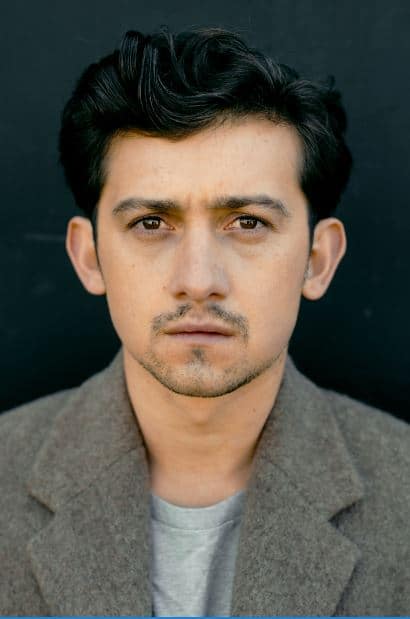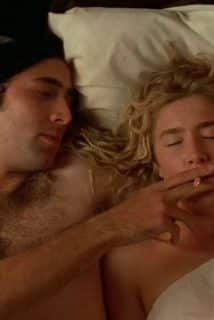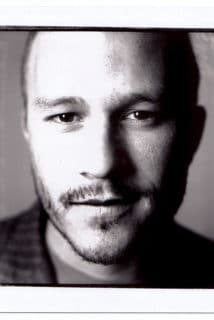The movie redefining the way we look at mental health
Culture
An interview with Craig Roberts about his remarkable new film Eternal Beauty, which stars Sally Hawkins as a schizophrenic but resists the usual tropes and instead delivers a story with laughs as well as tears.
On World Mental Health Day we’re pleased to be able to report on a new film which tackles the issue in a way very different to the tropes you usually see on screen. Eternal Beauty manages to find the humour and humanity in mental illness, as well as the tragedy, in a way not seen since One Flew Over the Cuckoo’s Nest. And yet it also has a feel all it’s own. Craig Roberts is the writer-director behind it, with the young star from Submarine now on a firm path as a film-maker in his own right. Eternal Beauty carries much of the stylistic wit and instinctive characterisation from his debut Just Jim, only here it is honed and perfected, with a flair which is perfectly in tune with the viewpoint of its protagonist, Jane (Sally Hawkins). Jane has schizophrenia, and hears voices and thinks people are watching her from the walls – yet she is also full of pointed retorts and uncomfortable truths directed at her long-suffering and sometimes cruel family (including genius turns by Penelope Wilton as the mum, and Billie Piper and Alice Lowe as her sisters). No spoilers here, but as the film veers from tragedy to comedy, it becomes a powerfully emotional take on mental illness as a strength capable of redeeming herself and the others around her.
The film debuted at London Film Festival this week and we were lucky enough to grab a quick word with Craig to find out more…
How’s the festival been going?
We had the premiere last night and it seemed to go really well. I could close the book, in a way: I saw it with people.
How was that? Were you ok?
Yeah its interesting, I feel like there’s humour throughout the movie but you don’t know if they’re going to laugh or if they’re going to feel uncomfortable. But people were laughing a minute or two minutes into the movie so I could relax. And so I just tried to watch it like anyone else and enjoy it.
Well, we really enjoyed it, it handles the humour and seriousness of mental health with a sure touch and really feels like it brings humanity to the issue. While still being highly emotional – we were wrung out. Where did you first come up with the idea and develop it?
I’m glad you liked it, I also feel wrung out from watching it – it should come with some paracetamol to take. It’s a very personal story. I grew up around a family member of mine who, in our reality, was diagnosed with a mental illness but to me it was a superpower.
I didn’t realise much of it when I was a kid but I suppose about 5 or 6 years ago I started to realise and heard more of the story, and felt like I should share her superpowers with the world. She was an incredible person with what she was dealing with – always the funniest person in the room, completely wicked in her own way and by far the most individualistic person I have ever met in my life.
Did you also research into mental illness?
I didn’t need to do too much research to be honest, I had personal experience to draw on, I grew up with this person and knew her very well. But what we did do was work with the Wellcome Trust [who fund campaigns to improve understanding of health], and they gave us a consultant from Cambridge, a scientist who was overseeing the whole thing, from the script to the edit. So I really wanted to stay close to the truth. And for me that was staying close to the superhero.
It’s a lovely approach. A lot of people who we’ve spoken to about serious mental health problems, do see the humour in it, it can be human.
Life is funny and life is sad. The humour in this film is not laughing at the protagonist, it’s laughing with her, and her wicked ways. Sometimes people need permission to laugh in those situations. I think there’s so many movies that touch on mental health that almost turn the illness into a possession. They’re screaming like they have a demon inside them. My thinking was, how can we recast mental health as a strength?
Yeah and you hit that note of showing normality as being boring and actually often full of cruelty.
Exactly, we all have different realities, and just because our reality is ours, doesn’t mean it’s the right one. We shouldn’t judge people on what they’re living through. And it’s the same with Jane – just because she’s in a different reality doesn’t make it the wrong reality, its just her reality, and that’s just what she’s dealing with.
Being so close to the character does allow you to do some inventive visual moments, like the shot from inside the microwave where we’re spinning round on the plate…how much design work did those kind of shots take?
I’m a bit of a nerd when it comes to planning all that stuff. I took three years to prep the movie so every frame was planned out. I always think with a movie, if you can remove the visuals and it still works as a podcast or radio play, then it should be one of those. If the visuals aren’t adding any more to it you’re probably not doing the right job. So I tried to make sure every frame was filled, and if you’re dealing with a protagonist that is living with paranoid schizophrenia then you need the microwave shot, and go with the idea of people watching her from behind the walls, which she talks about in the movie. There’s movies that I watch all the time and Taxi Driver is one of those – it’s a perfectly shot film, and the way the camera moves from the protagonist’s point of view is incredible. In a similar way, for me it was about staying as true to Jane as possible.
Visually Punch Drunk Love was a reference, the Paul Thomas Anderson picture. Adam Sandler plays a character called Barry Egan and what a lot of people don’t know is that he’s actually superman in the movie. The movie is about a guy who is very anxious, and isn’t able to deal with life, and PTA put a twist on it that he’s actually Clark Kent and an alien – therefore he doesn’t fit in.
That idea of taking about anxiety and actually making him into a superhero who just doesn’t know how to deal with it…I thought it was pretty refreshing so I certainly followed that down the rabbit hole.
You have some top actors in the film, like Sally Hawkins and David Thewlis – how do you approach directing them, is it daunting?
It’s weird, it is daunting but you can’t show it at any point. As a director you shoot everything you’re supposed to but you certainly go home at night and think, ‘I really hope it’s going to work.’ Because you really don’t know at the time, you have just got to enjoy the work and hope it all comes together. What helps is if you write the picture as well as direct the picture, because you know it all, you hold all the secrets, you know how it looks, so people have to come to you for the answers, which is better for my anxiety. Also Sally and David and Billie and Penelope all had great ideas and it was a free flowing set. There was no bad ideas and we tried it all to capture what’s good, and what isn’t won’t be in the film.
So you still allowed yourself space on set despite writing and planning the shots?
Yeah more so for the actors, not the visuals, I’m a believer in letting actors fly and not cutting their wings. Let them really go for it. Give them the confidence that they can go into the dark, dark corners. So having their ideas and my ideas come together is a wonderful thing. Although we shot on 35mm so we didn’t have that many takes, we had to make them count.
How long was actual shoot?
We shot for 28 days which is normal for our kind of British independent movie. I’d have liked 28 days more but 28 was fine. And then we had 6 weeks prep with heads of department. Although Sally had had the script for about a year and a half, so we were constantly going back and forth and exchanging ideas, songs and colours and images we thought would work.
How much do you bring in other material, in this gestation period? Are you feeding in lots of film, art, music?
Yeah but it’s dangerous. I write to music but if accidentally Spotify lands on Sam Smith the whole tone of the movie’s going to change. It’s a really dangerous game. I certainly write to music and make a playlist of songs that doesn’t really go outside of the world that I can imagine. And then before we shot the movie we showed the heads of the departments and all the crew and the cast and to get the feel and the tone and where the movie could be heading, we showed Punch Drunk Love and Ingmar Bergman’s Through a Glass Darkly. But during the film I don’t watch any films and then during the edit I don’t watch any films, because its like if you watch a David lynch film during your edit you’re going to get very surreal all of a sudden.
In the edit you’ll hit a wall and there’s a risk of starting to think, ‘oh this will work better in black and white,’ or ‘maybe we should change to 4:3.’
Do you feel a progression from Just Jim in your skills and confidence?
Other people will have to be the judge of that but I think there is a progression. I think it’s all about voice. With the first film I made I’m very proud of it. With Eternal Beauty it feels like my voice. It’s a self discovery about what kind of films you want to make. You don’t want to make films that feel like other people’s films because people aren’t going to relate to it. You have to make it true.
The film hits huge highs and lows, how was that for Sally?
Sally really gets into character. We shot in Wales and we went there a month or two before for her to get into character and slowly walk into the water. Its interesting, I’m very good friends with Sally but when the filming finished the next day I went to see her and realised that I’d almost become friends with the character. She had been going in and out of the character so well that I couldn’t’ really tell who was who at that point. When someone is that good and comes that prepared and they are the character, it’s so cool.
It has an interesting take on families and how they react to mental illness. With quite a harsh troubled mum and a silent watchful dad. What was your take?
Jane talks about how there are Frankenstein’s in the house, and they look just like us and they pretend to be nice. A lot of the men also make almost Frankenstein noises, certainly the dad does. I don’t know what that means but it’s there. In terms of the mum, I think the mum has a superpower like Jane and I just don’t think she knows how to deal with it. She’s never been diagnosed, and I think she’s never known. She’s like all the sisters put together – I see a lot of parents trying to live their lives through their children, and maybe not being happy with the decisions they made in their lives. It’s about how decisions can result in problems. But the mum is dealing with the same thing as Jane, she’s a clairvoyant, she believes she can hear voices, and read palms. I think it’s the same thing with religion, you think you can speak to somebody else…where’s the line on that, on somebody hearing voices in the wall against somebody hearing God?
Especially when often the characters think Jane is just talking nonsense or lying when actually she’s often telling the truth. It breaks with the idea that you’re just dealing with a completely ‘crazy’ person.
Yeah exactly. To be honest I wanted people to start the film thinking this person is unreliable and then by the end you realise she’s been telling the truth the whole time.
Do you know what your next movie is going to be?
Yes, and it’s going to be even more challenging – I can’t say what it is I don’t want anyone to steal the idea!
What do you want people to get from Eternal Beauty?
I want people to be kinder and to acknowledge other people. And I hope that people leave the movie with a sense of hope.
Is there a particular line in the film that holds everything together for you?
There is! Its maybe not my favourite line but it’s the most appropriate: ‘what if there’s no such thing as happiness, only moments of not being depressed.’ Happiness doesn’t have to be the default there are many different ways to live your life.
Eternal Beauty is it out on general release later in the year.
Trending

Join The Book of Man
Sign up to our daily newsletters to join the frontline of the revolution in masculinity.

















